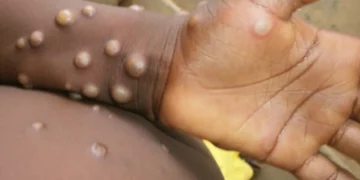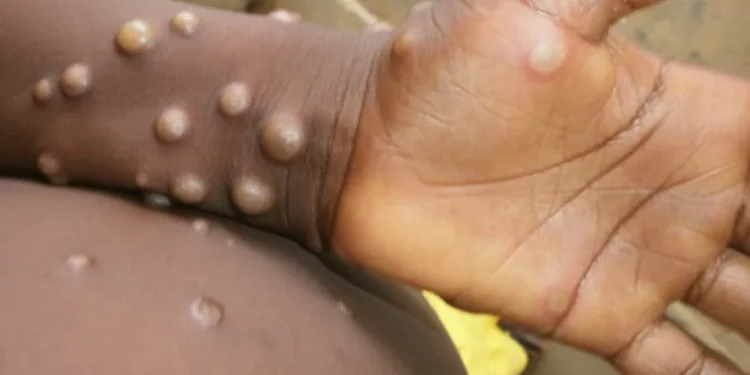By Ebi Kesiena
Ghana has recorded its first death from Mpox, marking a grim milestone in the country’s battle against the virus, as health authorities report a sharp uptick in new cases.
According to a statement released on Sunday, Ghana’s Ministry of Health confirmed 23 new Mpox infections within the past week, pushing the total case count to 257 since the virus was first detected in June 2022. This represents the highest weekly increase since the outbreak began and includes the nation’s first fatality linked to the disease.
Health Minister Kwabena Mintah Akandoh, while addressing the development, assured the public that “the situation is under control,” emphasising the need for early detection and responsible behaviour to curb the spread.
Mpox, formerly known as Monkeypox, is a viral disease related to smallpox that presents with fever, body aches, and distinctive skin lesions. The infection spreads primarily through close physical contact with infected individuals or contaminated materials and can be fatal in severe cases.
In response to the rising cases, Ghana is expected to receive vaccine supplies from the World Health Organization (WHO) this week. Dr Franklyn Asiedu-Bekoe, Director of Public Health at the Ghana Health Service, said targeted vaccination efforts will begin as soon as the doses arrive.
“We’ve already mapped out at-risk groups and are prepared for rapid deployment,” he said.
Ghana’s outbreak reflects a broader regional concern. West African countries continue to grapple with increasing infections, with Sierra Leone alone reporting 3,350 cases and 16 deaths between January and May this year. The Democratic Republic of Congo, Uganda, and Burundi have also seen significant surges.
According to data from the Africa Centres for Disease Control and Prevention (Africa CDC), over 47,000 Mpox cases and 221 deaths have been reported across the continent since January 2024. At least 27,000 of those infections occurred in the first half of this year.
The WHO has maintained Mpox as an ongoing international health emergency. Director-General Tedros Adhanom Ghebreyesus recently reiterated the organisation’s concern over the growing number of cases in West Africa.




































